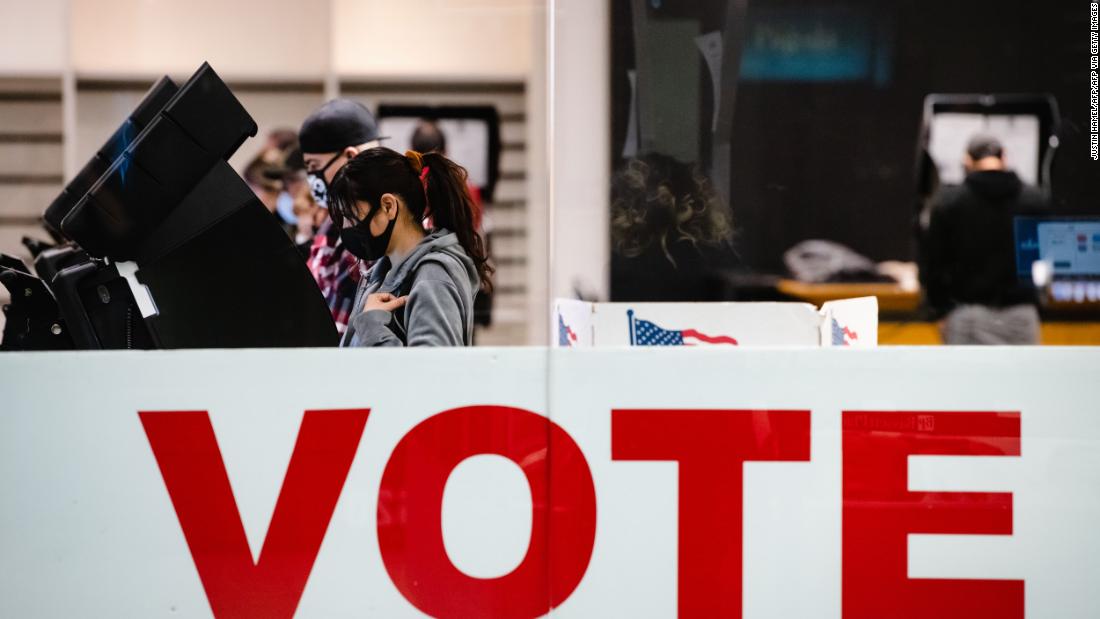The lawsuit filed Thursday in federal court in San Antonio challenges the law known as SB1 passed earlier this year to overhaul election procedures in the state.
The law, which bans 24-hour and drive-thru voting, imposes new hurdles on mail-in ballots and empowers partisan poll watchers, was signed by Texas’ Republican Gov. Greg Abbott in September.
The Justice Department lawsuit said the law illegally restricts voters’ rights by requiring rejection of mail ballots “for immaterial errors and omissions.” The law also harms the rights of voters with limited English proficiency, military members deployed away from home and voters overseas, the Justice Department alleged.
“Before SB 1, the State of Texas already imposed some of the strictest limitations in the nation on the right of certain citizens to voting assistance. SB 1 further, and impermissibly, restricts the core right to meaningful assistance in the voting booth,” the Justice Department said.
The Texas law passed following a contentious debate in which some Democrats left the state to try to prevent its approval. It was among a spate of similar laws in Republican-run states aimed in response to false claims of widespread voter fraud in the 2020 election.
Other changes
The law introduced new mandates requiring Texans who vote by mail to provide either their driver’s license number or the last four digits of their Social Security number twice: once on their absentee ballot application forms and once on the envelope in which they return their ballots.
Those numbers will then be matched against voters’ records to confirm they are who they say they are — a change from the current signature matching process.
Under the law, the Texas secretary of state’s office is required to check monthly to make sure no one is on the state’s voter rolls who said they were not a citizen when obtaining or renewing their driver’s license or ID card.
It also makes it a felony for a public official to send someone a mail-in ballot application the person did not request, or to pre-fill any part of any mail-in ballot application they are sending to someone.
This story is breaking and will be updated.
CNN’s Shawna Mizelle contributed to this report.







More News
Opinion | Seven Theories for Why Biden Is Losing (and What He Should Do About It)
Critics Fault ‘Aggressive’ N.Y.P.D. Response to Pro-Palestinian Rally
Korean Fried Chicken to Save Your Sunday